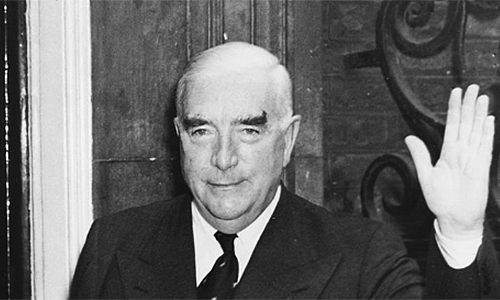Photo courtesy of Free Burma Rangers: Young resistance soldier with critical injury to lower jaw.
In a bombed-out village in Karenni State, Burma (Myanmar), a Free Burma Ranger, a member of the Karenni ethnic group, comforts a woman whose eight-year-old daughter was killed by the Tatmadaw, the Burma Army. In nearby Shan State, during an ongoing assault by the Tatmadaw, another team of Rangers evacuated 500 internally displaced people. Tatmadaw mortar and drone attacks claimed the lives of one man and an eight-year-old girl, and a former Ranger was injured after stepping on a landmine, resulting in the loss of his leg. Ranger team members provided emergency medical care for the wounded. In northern Karen State, Rangers responded after the Burma military launched airstrikes and other attacks on civilians, destroying a church, school, clinic, and civilian homes.
Since October of last year, the tide has turned in the world’s oldest ongoing conflict, which began in 1948, with the Tatmadaw steadily losing ground to resistance forces. However, the government’s response has been a surge in airstrikes, primarily targeting civilians and places of worship, particularly churches.
Helping those affected by the war, the Free Burma Rangers (FBR) is a faith-driven aid organization based in the United States that provides frontline humanitarian and spiritual support in conflict zones like Burma, Iraq, Syria, and Ukraine, with their primary focus remaining in Burma, where they have been saving lives for nearly 30 years. FBR teams are composed of members from many of Burma’s 135 ethnic groups, including Karen, Karenni, Shan, Chin, Kachin, Pa-O, and Mon—most of whom are actively resisting the military junta that took control of the country in a 2021 coup. While the Christian faith was foundational to FBR’s creation and is the predominant religion among its members, rangers come from various faiths, including Buddhism, animism, and Islam.
The group’s founder and leader, former special forces officer David Eubank, explained, “Free Burma Rangers are not a religious organization; people are free to join from different faiths as long as we all agree that we do this for love. At the same time, many of the Rangers and most of the leaders are Christians.”
Rangers also follow a strict code stating that they cannot run if the people they are helping cannot run, which means they not only enter danger zones but stay there until the last civilian or wounded person is evacuated. This includes treating wounded Tatmadaw soldiers. All injured individuals are cared for by FBR medics, regardless of their affiliation in the conflict; they are fed, protected, and reassured with the words, “God loves you. I love you. You’re not abandoned.”
Currently, an estimated 3.3 million people are internally displaced in Burma. Unlike refugees, these internally displaced people (IDPs) lack UN protection and remain beyond the reach of most large aid organizations, including the UN.
Recognizing this urgent need, the Free Burma Rangers train ranger teams in emergency medicine and reporting. Hundreds of these teams operate across the country, delivering aid and documenting the conflict, including human rights abuses and war crimes by the Burmese junta. The information gathered is compiled into dispatches and situation reports distributed worldwide. Yet, to date, no major government—the United States, EU, UN, or ASEAN—has intervened or provided substantial aid to support the resistance forces or assist in rescuing the IDPs.
On October 30, Rangers reported that a Burma military MIG-29 jet dropped two bombs on civilian homes in Dwe Low Township, Karen State. This highlights a critical issue raised by Eubank and other Rangers and corroborated by international human rights groups and other observers: the Tatmadaw is backed by weapon systems from Russia, China, and North Korea, with support from Iran.
“They are attacking at a rate we’ve never seen since World War II,” Eubank noted.
The rebels, who are equipped with a mismatched collection of small arms, including vintage rifles and homemade guns, have no means to counter Chinese and Russian aircraft. Drones, including advanced first-person drones, are also playing an increasingly significant role in the conflict.
The junta’s actions have been condemned by the U.S., EU, UN, and international partners such as Japan, yet none have taken concrete steps to assist the resistance. When asked about the most critical needs in Burma and how people worldwide could help, Eubank said, “First, our main request is for prayer.”
He also urged for humanitarian assistance, explaining that the most effective way to get aid to internally displaced people is through small ethnic aid organizations or limited cross-border aid missions. Additionally, he requested formal recognition of the National Unity Government, Burma’s government in exile. Currently, China is engaged in ongoing talks with the junta, which has even been invited to occupy Myanmar’s seat at the Association of Southeast Asian Nations for certain meetings.
It’s contradictory that the U.S. and other countries advocate for democracy in Burma yet have not formally recognized its democratic government in exile. Additionally, the resistance forces urgently need anti-aircraft weapons to counter the jets, helicopters, and drones supplied—despite sanctions—by China, Russia, Iran, and North Korea. If the humanitarian or moral imperative to support Burma is insufficient, then the international community should consider the long-term strategic implications: without intervention, the conflict could continue indefinitely, ultimately turning Myanmar into a vassal state of China.
After so many decades of war, it would be easy to lose hope, but Eubank remains optimistic. “The good news is that there’s a unity in Burma that we’ve never seen before,” he said. “It’s a unity that crosses social, political, economic, racial, tribal, and religious lines—all fighting against the dictators, fighting for a new form of democracy. That’s a blessing.”
The post Inside Burma’s War Zone: Free Burma Rangers Bring Aid and Hope appeared first on The Gateway Pundit.









